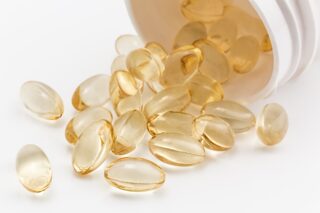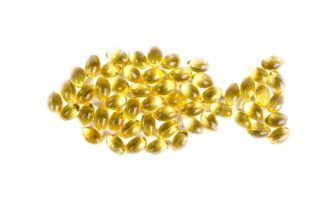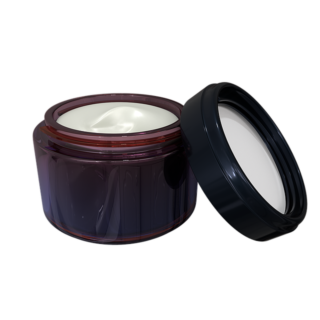Introduction
We all crave that radiant, healthy glow, but achieving it requires more than just a skincare routine. The secret to vibrant skin lies in a holistic approach that includes a balanced diet, mindful lifestyle choices, and ocassionally the right supplements. This blog post will uncover the essentials for maintaining healthy skin through lifestyle, diet, and supplements. By the end of it, you’ll have practical tips and insights to implement in your daily life, leading you to the beautiful, glowing skin you desire.

The Fundamentals of a Skin-Healthy Diet
Key Nutrients for Glowing Skin
Your skin reflects what you eat. Key nutrients such as vitamins A, C, E, and omega-3 fatty acids are crucial for skin health. Vitamin A promotes cell turnover, helping you maintain smooth skin. Vitamin C is an antioxidant that fights free radicals and supports collagen production. Vitamin E protects your skin from damage, while omega-3 fatty acids help maintain your skin’s lipid barrier, keeping it hydrated and plump.
Best Food Sources for Skin Health
You can find these key nutrients in a variety of foods. Carrots, sweet potatoes, and leafy greens are excellent sources of Vitamin A. Citrus fruits, strawberries, and bell peppers are rich in Vitamin C. Nuts and seeds, especially almonds and sunflower seeds, provide ample amounts of Vitamin E. For omega-3 fatty acids, look to fatty fish like salmon, flaxseeds, and walnuts. Integrating these foods into your diet can significantly improve your skin’s appearance.
Hydration’s Role in Skin Vitality
Water is often underrated, but it’s vital for skin health. Staying hydrated helps your skin maintain its elasticity and suppleness. Aim for at least eight glasses of water a day, and consider adding hydrating foods such as cucumbers, watermelon, and oranges to your diet. Herbal teas and coconut water are also excellent hydration options that support skin health. I am also a big proponent of using electrolytes on a daily basis.

The Impact of Lifestyle Choices on Skin Health
The Importance of Quality Sleep
Sleep is the body’s natural rejuvenator, and it’s incredibly important for your skin. During sleep, your body repairs damaged cells and produces new ones. Poor sleep can lead to dull skin, dark circles, and an overall tired appearance. Aim for 7-9 hours of quality sleep each night to give your skin the time it needs to heal and regenerate.
Managing Stress for Better Skin
Stress can wreak havoc on your skin, leading to conditions like acne, eczema, and psoriasis. When you’re stressed, your body produces cortisol, a hormone that increases oil production and inflammation. To manage stress, consider activities like yoga, meditation, and regular exercise. These practices can help reduce cortisol levels and improve your skin’s overall health.
The Benefits of Regular Exercise
Exercise not only keeps your body fit but also benefits your skin. Physical activity increases blood circulation, delivering more oxygen and nutrients to your skin cells. This helps keep your skin healthy and vibrant. Aim for at least 30 minutes of moderate exercise most days of the week. Activities like brisk walking, jogging, cycling and rock climbing (my favourite) are great options that can contribute to healthier skin.

The Role of Supplements in Supporting Skin Health
Popular Supplements for Skin Health
While a balanced diet is crucial, supplements can provide an extra boost. Popular supplements for skin health include collagen, biotin, and hyaluronic acid. Collagen supplements can enhance your skin’s elasticity and reduce wrinkles. Biotin, a B vitamin, supports skin, hair, and nail health. Hyaluronic acid helps retain moisture, giving your skin a plump, hydrated look. As mentioned previously, vitamin A, E, C and Omega-3 can be useful supplements if the diet is lacking.
Potential Risks and Considerations
It’s important to approach supplements with caution. Not all supplements are created equal, and some may interact with medications or cause side effects. Always consult with a healthcare provider before starting any new supplement regimen. They can help you determine the right type and dosage based on your individual needs and health status.
How to Integrate Supplements Effectively
To get the most out of your supplements, take them consistently and pair them with a healthy diet. Some supplements, like fat-soluble vitamins (A, D, E, K) and Omega-3 are best taken with meals that contain healthy fats for better absorption. Keeping a supplement journal can help you track your intake and any changes in your skin’s appearance, helping you adjust as needed.
Case Studies and Personal Stories
The Impact of Diet on Skin Health
Tom, a 28-year-old fitness enthusiast, discovered that his high-protein, low-carb diet was missing essential vitamins and minerals for skin health. By incorporating a variety of colourful vegetables and fruits, along with a daily multivitamin, Tom saw a reduction in his acne and an overall brighter complexion.
Success Stories with Supplement Use
Sarah, a 40-year-old teacher, struggled with early signs of aging, including fine lines and loss of elasticity. After adding a collagen supplement to her daily routine, along with increased hydration and a balanced diet, Sarah’s skin started to look firmer and more youthful within a few months.
Conclusion
Achieving healthy, radiant skin requires a holistic approach that includes a balanced diet, mindful lifestyle choices, and the right supplements. By focusing on the fundamentals of nutrition, managing stress, ensuring adequate sleep, and considering targeted supplements, you can transform your skin from the inside out. Remember, consistency is key. Start integrating these practices into your daily routine, and you’ll be on your way to healthier, glowing skin. For personalized advice, consider consulting with a naturopathic doctor or a nutritionist to tailor these tips to your specific needs.

























